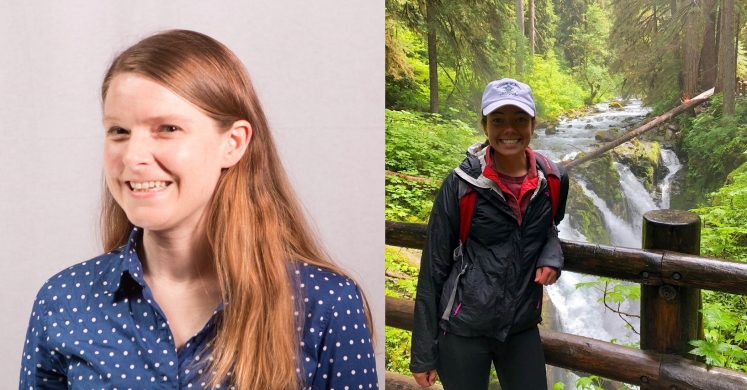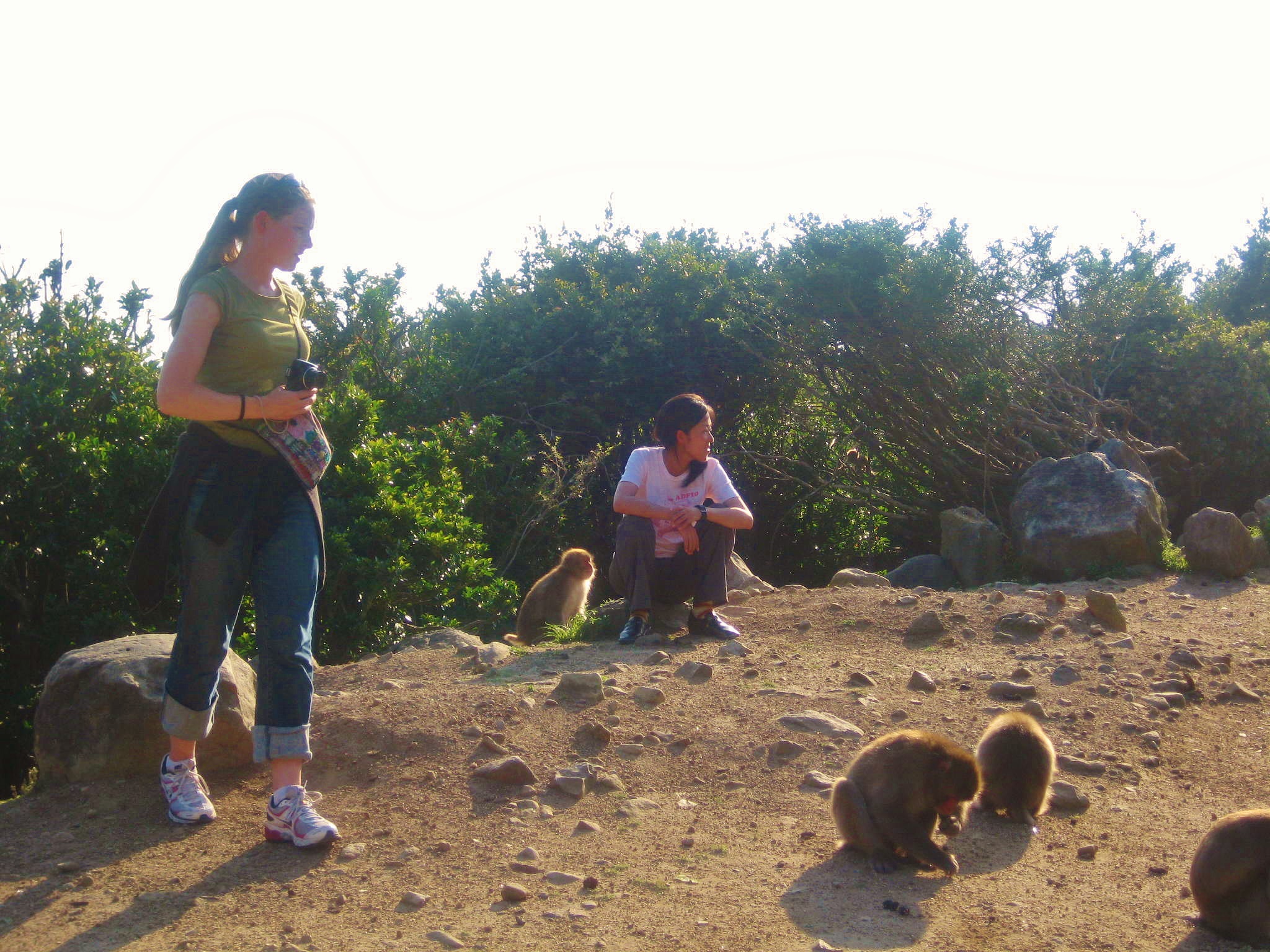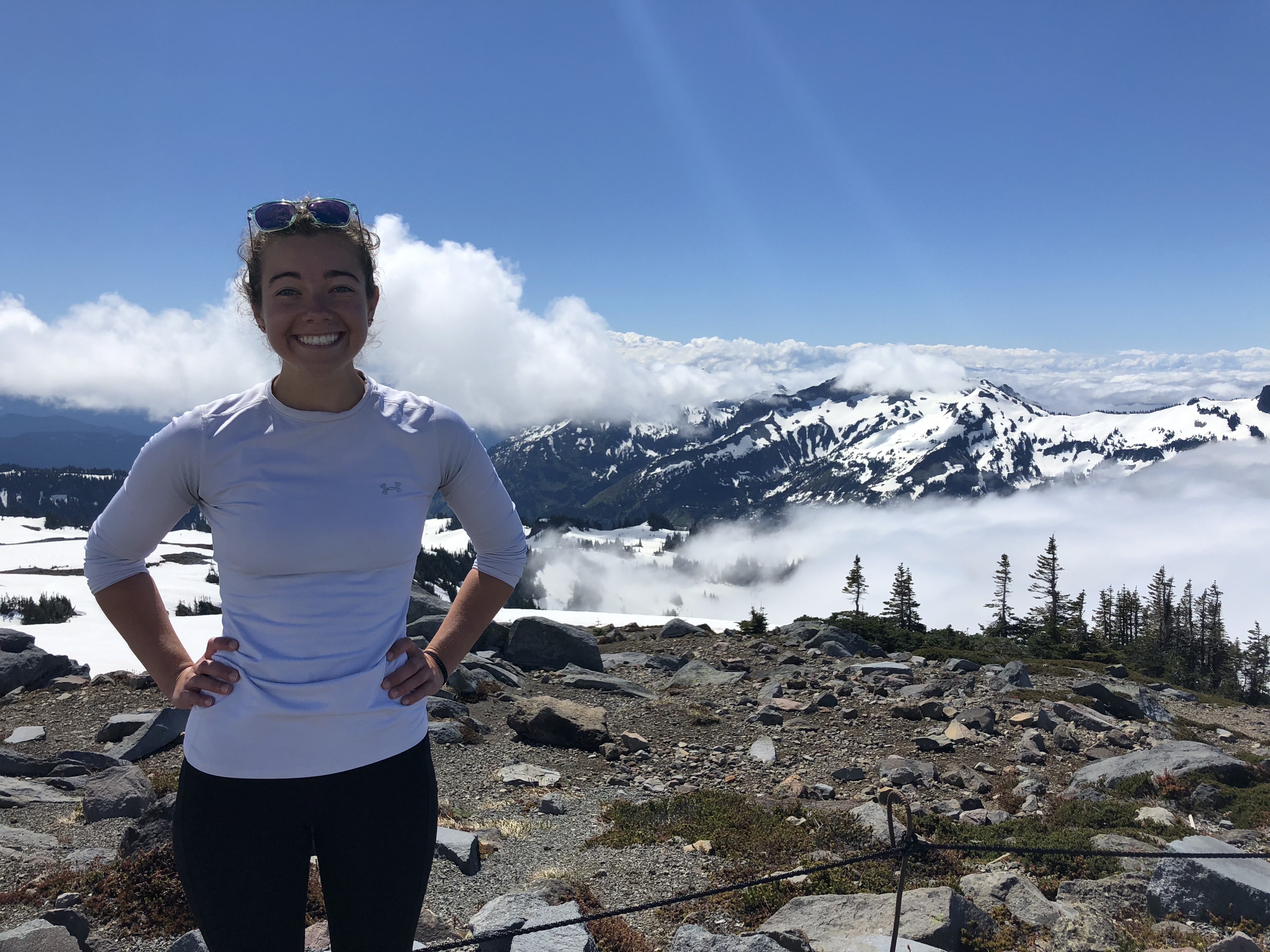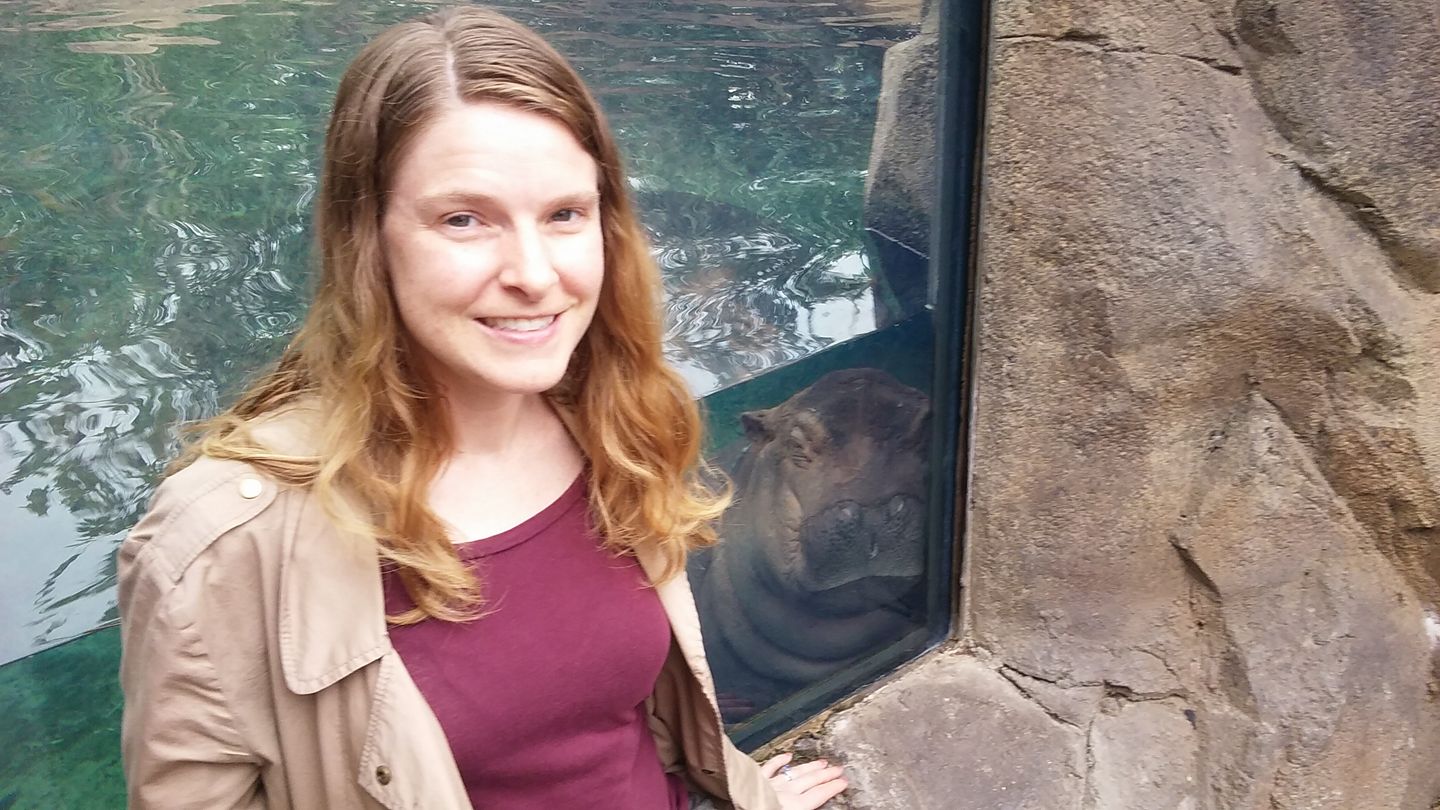Phipps Stories

Meet a Scientist: Dr. Wynn Meyer and Rachel Reeb
All of the researchers featured on Phipps' Meet a Scientist Saturdays have been trained through our science communication workshops. If you are graduate student, faculty, or professional in any field of STEM and you are interested in the workshop or participating in a Meet a Scientist Saturday, check out our website or contact Phipps’ Science Education Outreach Manager Dr. Maria Wheeler-Dubas.
Surf or turf? You don’t have to choose between the land and the sea for this month’s Meet a Scientist!
On Saturday, November 17, from 1:30-3:30 pm, come to the Tropical Forest to meet Dr. Wynn Meyer and doctoral student Rachel Reeb, both from the University of Pittsburgh; and learn more about their two very different fields of study. Wynn is a geneticist focused on marine mammals (you can find some recent coverage of her in National Geographic and the New York Times) while Rachel is a plant biologist trying to unravel the tangled story of invasive plants.
Introduce yourself in 5 sentences or less
Wynn: My name is Wynn, and I am a postdoctoral researcher at the University of Pittsburgh. I study how changes in animals' genomes help them adapt to new environments, and what patterns in gene sequences can tell us about what those genes do. After college, I worked in a lab for the Red Cross, using experiments with DNA to figure out people's blood types, and then I learned how to use computers to study human genetic variation in my PhD. Now I am working on projects studying the DNA of mammals that eat plants and other mammals that live in the water, with the help of college students and other scientists around the world. When I am not in the lab, I enjoy running (slowly), singing with the Mendelssohn Choir, and watching crime procedurals or The Good Place on TV.
Rachel: Hello, my name is Rachel Reeb and I’m a PhD student in invasion ecology at Pitt. Plant communities are a lot like trail mix… you want to find a variety of different things inside, like peanuts or chocolate, but too much of an ingredient that doesn’t belong, like potato chips or celery, can mess up the whole batch! Nonnative species are the like the potato chips of plant communities. My research investigates when and how these plants invade, and what are the best ways keep them out of the mix.
Why did you become a scientist?
Rachel: I’ve always been happiest in nature, and like many fellow ecologists I originally became attracted to research because it allowed me to spend my summers outside. The more time I spent in the field, the more curious I became about the hidden world of plants and animals around me.
Wynn: I have always been curious about how and why things happen in nature. I have also always enjoyed solving puzzles and learning new things. I went to graduate school because I was curious about where all the differences in our own species come from and what they mean, and I learned that becoming a scientist meant I could spend my career solving puzzles and learning new things about our own species and many of the other cool species in nature that have fascinated me since childhood. I feel like I stumbled into being a scientist, but I love it!
What is the most exciting thing you’ve ever done at work?
Rachel: Travel! Science has taken me to beautiful places all over the country. I’ve done fieldwork in 26 states now, and hopefully that number will keep increasing.
Wynn: How about the grossest thing? When I was in graduate school, I was working on a project studying blue-eyed monkeys that live in Japan. I wanted to know whether these monkeys had changes in their DNA in the same region that blue-eyed humans do, so first I needed to get DNA from some cells in their bodies. Because these monkeys are wild, I couldn't just take a blood sample (like when you get a doctor's check-up), so I decided to use their poop. Believe it or not, your poop has some cells from your intestine that contain DNA! I coordinated a trip to where the monkeys live with another scientist who lives in Japan. We spent several days looking for blue-eyed monkeys and then following them around and waiting for them to poop to get samples. This sounds really gross, but the island where the monkeys live was actually very beautiful, and I had a good time with my Japanese scientist friend.

What is your favorite part of your job?
Rachel: Getting to work with ecologists who love their job just as much as I do – it’s an infectious energy that I’ve never found anywhere else.
Wynn: My favorite part of my job is getting to work with other creative people and putting our skills together to learn new things. In my last project, I worked with medical biochemists, marine biologists, bioinformaticians, and an expert in GIS mapping. I learned so much from these other scientists! And having all these different skillsets meant we could do experiments to look at the same problem from many different angles.
If you weren’t a scientist, what would you be?
Rachel: I’d probably be working in environmental policy or with a conservation nonprofit.
Wynn: A star on Broadway! Seriously, though, if I weren't a scientist, I would look for a job that would allow me to be creative and to work with and help other people. I've always been interested in the arts and community organizations, so I could see myself putting my analytical and communications skills to use for a non-profit, for instance.
Why is science education important?
Rachel: Science is unifying. We all live on an amazing, complex planet and share the resources it has to offer. I think that education, especially in biology, allows us humans to realize that we all are more similar than we are different.
Wynn: Science is the best method we have for understanding how things work, from the makeup of our galaxy to the processes in our cells. One of the great things about science is that it keeps adding onto itself: We use all the evidence we have to explain the things we see, and then when we get a new piece of evidence, we update that explanation. It's important for everyone to understand this process so we can interpret the science that we encounter in our lives, like at the doctor's office or in the news. When a website says "Scientists show eating X reduces cancer risk!" it's important to be skeptical of the finding, but also to understand that this one new study is contributing to a larger understanding of food X and cancer. Science education gives us tools to process articles like this and to make decisions about our health and our environment.

Rachel Reeb

Dr. Wynn Meyer...and Fiona!

